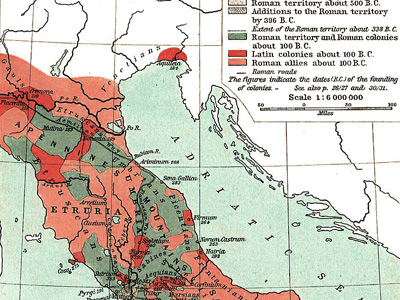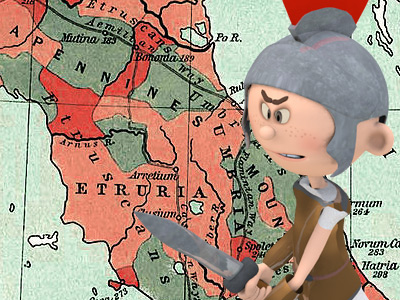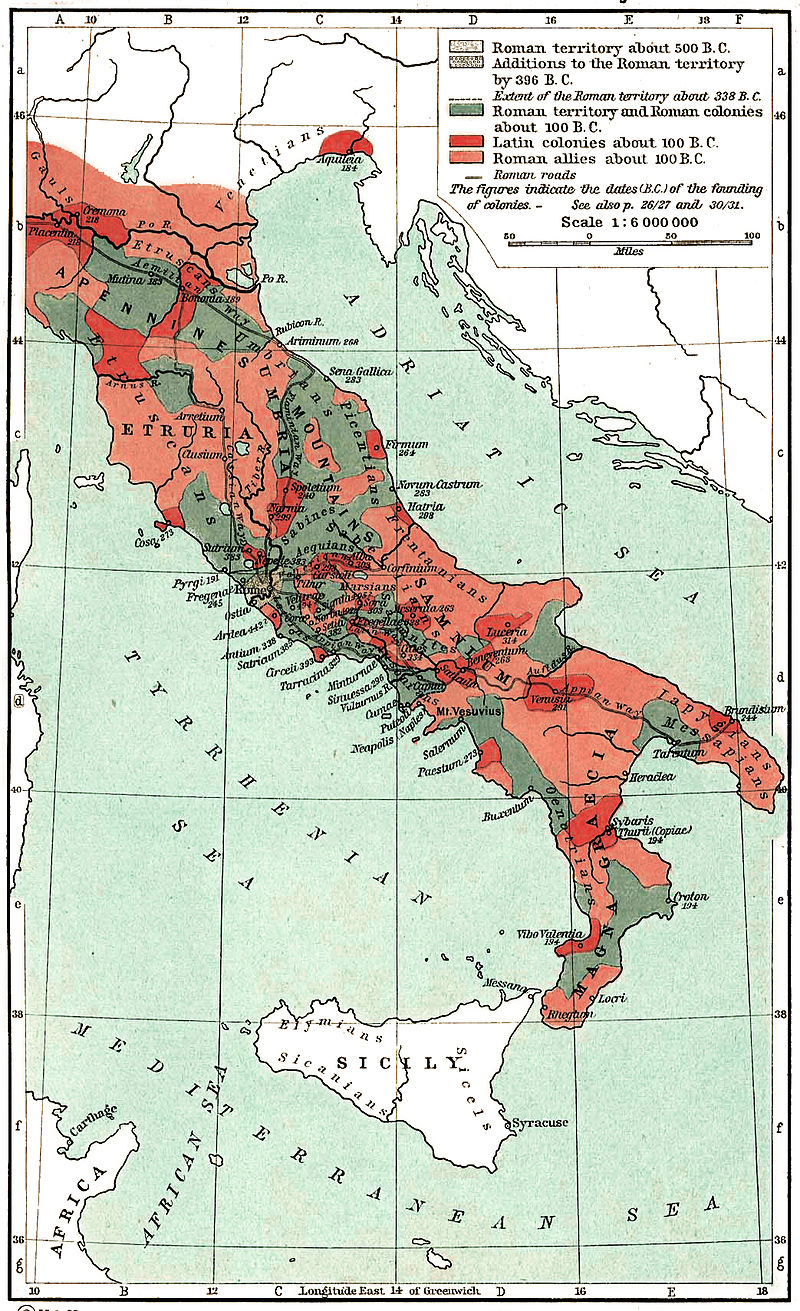Social War (91–88 BC)

Roman Concessions to the Allies
L. Julius Caesar proposed the Lex Julia during his consulship which he carried before his office ended. The law offered full citizenship to all Latin and Italian communities who had not revolted.
However, the law offered the option of citizenship to whole communities and not to individuals. This meant that each individual community had to pass the law, most likely by a vote in assembly, before it could take effect. It was also possible under the Lex Julia for citizenship to be granted as a reward for distinguished military service in the field.
It is assumed that the Lex Julia was closely followed by a supplementary statute, the Lex Plautia Papiria, which stated that a registered male of an allied state could obtain Roman The Roman Republic was a form of government of Rome and the era of the classical Roman civilization when it was run through public representation of the Roman people. Beginning with the overthrow of the Roman Kingdom (traditionally dated to 509 BC) and ending in 27 BC with the establishment of the Roman Empire, Rome's control rapidly expanded during this period - from the city's immediate surroundings to hegemony over the entire Mediterranean world. citizenship by presenting himself to a Roman praetor within 60 days of the passing of the law. This statute enabled inhabitants of towns disqualified by the Lex Julia to apply for citizenship if they desired.
The Roman Republic was a form of government of Rome and the era of the classical Roman civilization when it was run through public representation of the Roman people. Beginning with the overthrow of the Roman Kingdom (traditionally dated to 509 BC) and ending in 27 BC with the establishment of the Roman Empire, Rome's control rapidly expanded during this period - from the city's immediate surroundings to hegemony over the entire Mediterranean world. citizenship by presenting himself to a Roman praetor within 60 days of the passing of the law. This statute enabled inhabitants of towns disqualified by the Lex Julia to apply for citizenship if they desired.
HISTORY

RESOURCES
This article uses material from the Wikipedia article "Social War (91–88 BC)", which is released under the Creative Commons Attribution-Share-Alike License 3.0.
© Stories Preschool. All Rights Reserved.










